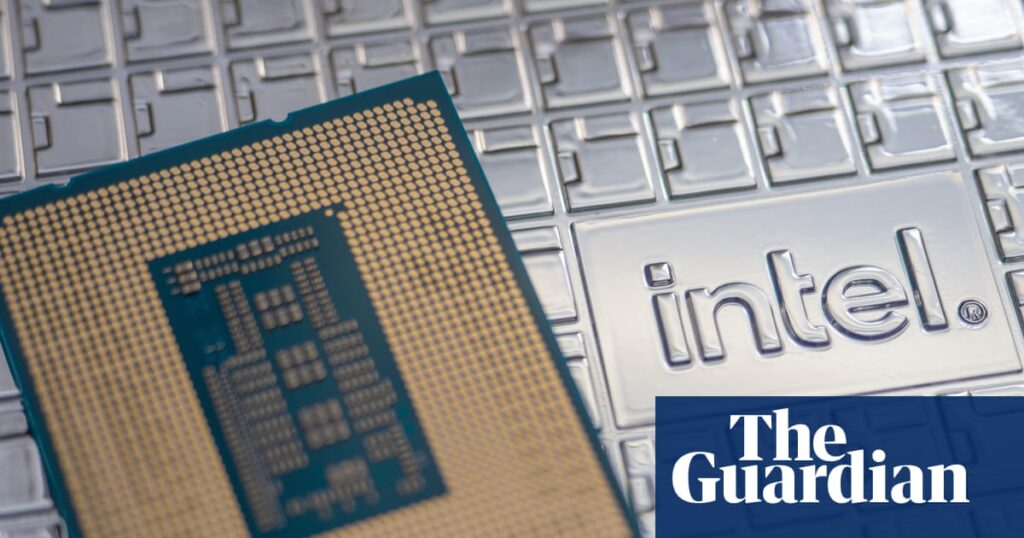SoftBank has agreed to invest $2bn (£1.5bn) in Intel, amid reports that Donald Trump’s administration is also considering a stake in the struggling US chip maker.
The Japanese technology investor announced the multibillion-dollar deal on Tuesday, in a move expected to give it a 2% stake in the business.
Masayoshi Son, the chief executive and chair of SoftBank, described Intel as a “trusted leader in innovation”.
“This strategic investment reflects our belief that advanced semiconductor manufacturing and supply will further expand in the US, with Intel playing a critical role,” he said.
Shares in the chip maker, which is listed in New York, rose by more than 5% in after-hours trading, while shares in the Tokyo-listed SoftBank dropped by about 4%. Intel is valued at more than $100bn.
The US government is reportedly also considering taking a stake in Intel. It could be as high as 10%, according to Bloomberg. The White House did not respond to a request for comment.
Lip-Bu Tan, an industry veteran who took the top job at Intel four months ago, has been tasked with a huge turnaround project at the business. The company has suffered from slow sales and continued losses as it has struggled to maintain its technological edge in recent years.
On Tuesday, Tan said Intel was “very pleased to deepen our relationship with SoftBank, a company that’s at the forefront of so many areas of emerging technology and innovation and shares our commitment to advancing US technology and manufacturing leadership”. He had “worked closely together [with Son] for decades”, he added.
Donald Trump initially called for Tan’s resignation, accusing him of having ties to the Chinese Communist party. However, after meeting Tan in Washington last week, the president praised the Intel boss, saying he had “an amazing story”.
If the US government takes a 10% stake in the business, it could surpass the asset manager Vanguard as the chip makers’s single biggest shareholder. It would mark the Trump’s administration latest attempt to intervene in an area of the private sector that it considers nationally strategic.
Trump has threatened previously to impose tariffs of up to 100% on imported semiconductors and chips, which could favour Intel as a US-based semiconductor business.
Earlier this month, the US government announced a deal that would result in chip makers such as Nvidia and Advanced Micro Devices paying 15% of their revenue from Chinese AI chip sales to the US government. In July, the defence department also announced it would take a $400m preferred stake in the US rare-earth producer MP Materials.
after newsletter promotion
For SoftBank, the Intel investment expands its presence in the US, while the Japanese government pushes Trump to cut tariffs in exchange for investment in the American economy.
The Japanese company committed to increasing its presence in the US last year, and Trump announced in December that SoftBank would pour $100bn into the US economy over the next four years.
Danni Hewson, an analyst at the investment broker AJ Bell, said SoftBank’s investment provided “one vote of confidence that Tan’s recovery effort can be successful.
“Intel has been left behind by the shift to AI with US peers like Nvidia and Advanced Micro Devices enjoying much greater success in this market,” she said.
“The company’s position as the last US manufacturer of high-end semiconductors of any scale means it has potential strategic significance across the Atlantic but translating this into improved operational and financial performance is now the big challenge.”

